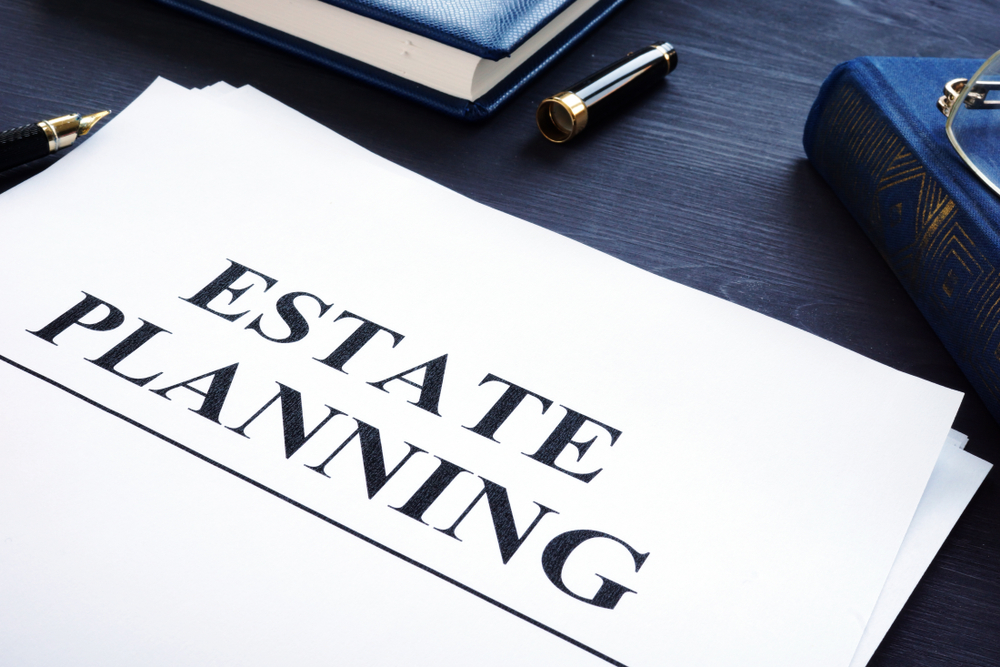

Legal Insight. Trusted Advice.
Latest Newsletter
Why Everyone Should Have an Estate Plan
Jul 11, 2022
Do you have a will? A durable power of attorney? A health care proxy? If so, no reason to read on. If not, why not? Failure to create an estate plan risks causing discord in your family for generations to come.
The following are four often stated reasons for not having an estate plan:
Just Not Getting Around to It
A discussion of why everyone needs an estate plan starts with a consideration of what “estate” means and what “estate plan” means. Your “estate” is simply everything you own: bank accounts, stock, real estate, motor vehicles, jewelry, household furniture, retirement plans, life insurance, etc.
Your estate plan is the means by which you pass your estate to the next generation. This can be accomplished through a variety of instruments. Most retirement plans and life insurance policies pass to whomever you name as beneficiaries. Property that is jointly owned passes to the surviving joint owner. Trust assets go as provided by the terms of the trust.
Only property you hold in your name comes under the instructions laid out in your will. If you don’t have a will, such property passes under the rules of “intestacy” set out in state law. In general, those rules provide that your property will be divided among your closest family members.
Problems often arise when people don’t coordinate all of these methods of passing on their estate. For example, your will may say to divide everything equally among your children. But, if you put an account in joint names with one child “for the sake of convenience,” there could be a fight about whether that account should be put back in the pool with the rest of your property.
One of the most important aspects of a will is that it names an executor or personal representative to handle the probate of your estate. Litigation can develop simply because family members cannot agree on who should take on this role.
For those with small children, the will is indispensable because it permits you to appoint a guardian in case both parents pass away. It also permits you to choose a trustee to manage your estate for the benefit of your children. This person may or may not be the same as the guardian.
But My Estate Is Small
For many individuals, especially those with smaller estates, the most important document is not the will, but a durable power of attorney. Through a durable power of attorney, you can appoint someone to handle your finances in the event that you are ever unable to do so yourself. It also permits you to choose your guardian in case one is ever needed, although one of the main purposes of a durable power of attorney is to avoid such a necessity.
Similar to a durable power of attorney, a health care proxy appoints someone you trust to make medical decisions for you in the event of your incapacity.
While a will protects your estate after you’re gone, a durable power of attorney and health care proxy protect you while you’re still here.
But I Took Care of It With Joint Accounts
Joint accounts are a poor estate planning tool. It is impossible to keep separate accounts for more than one child equal. This is especially true if you become incapacitated and no longer have control over the accounts. Trying to save a few dollars by managing your estate in this fashion runs the strong risk of causing discord in your family for generations to come. Why take the chance?
But I Don’t Want to Pay a Lawyer to Draw Up the Plan
Although there are other means besides lawyers to produce an estate plan, those other means, for example software, do not have the ability to customize your estate plan to your particular needs. For example, do you have a taxable estate? Do you own significant amounts of tax-deferred retirement plans? Do you know how to fund a revocable trust? Is there anything about your estate that is unusual, such as having a child with disabilities?
If you have any questions about your estate plan, you need to see a lawyer who can customize your estate plan and address your individual issues and/or concerns.
Consult with the attorneys at Kommer Bave & Ciccone LLP to get started on your estate plan.


